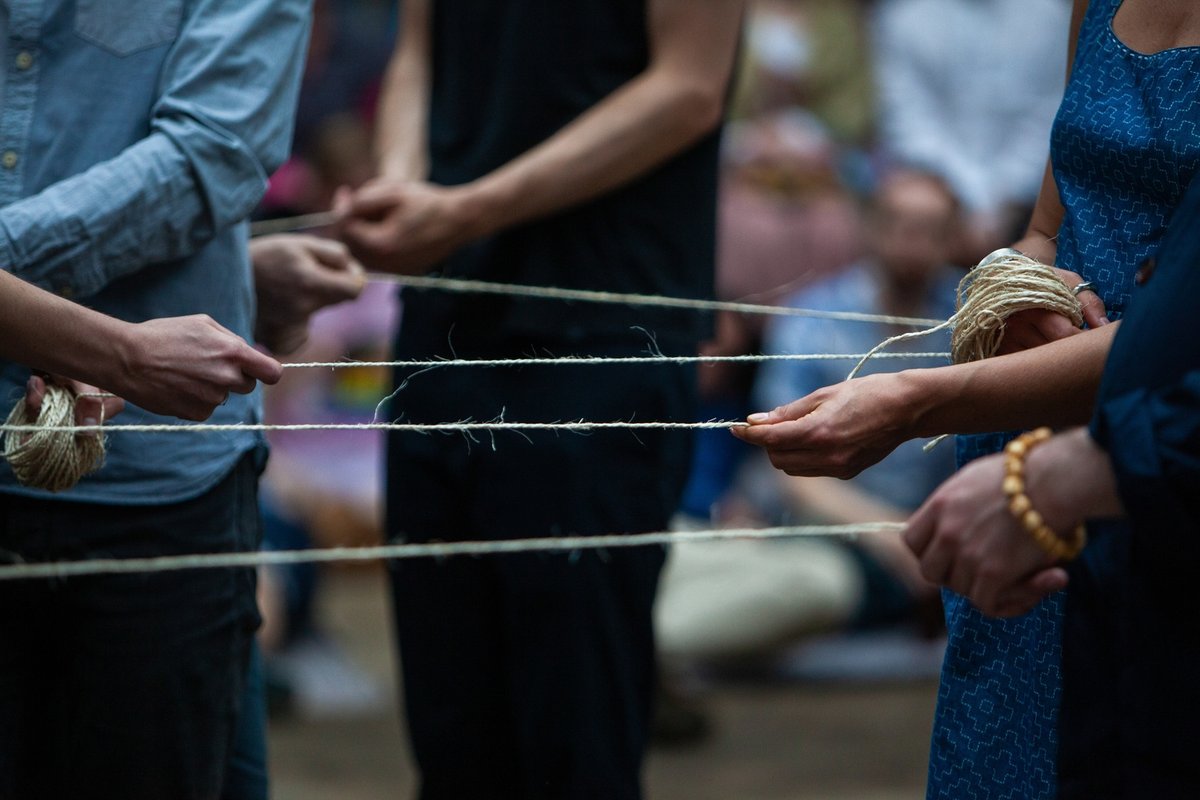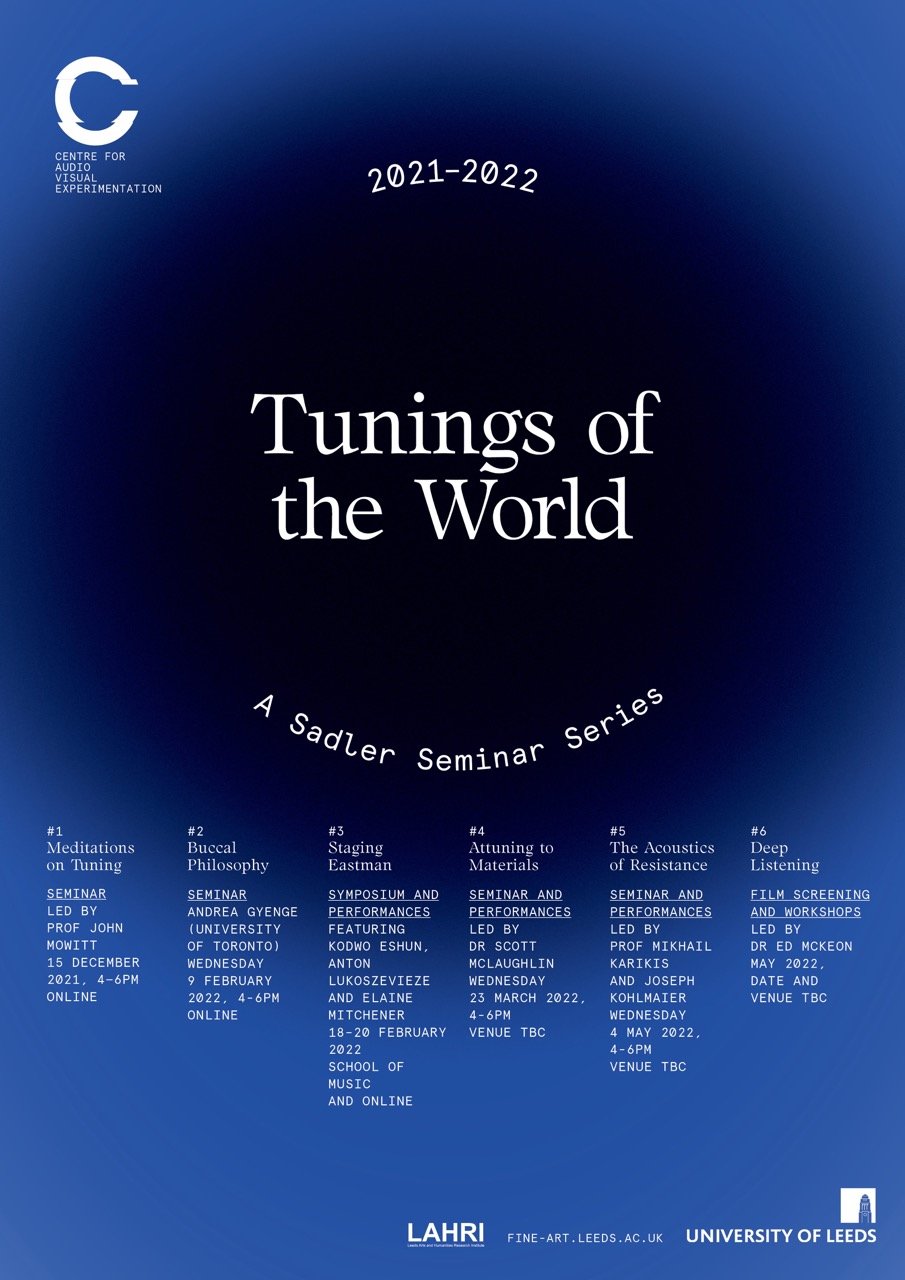Acoustics of Resistance
Acoustics of Resistance is a new work by Mikhail Karikis exploring our connection and fascination with weather phenomena. From folk songs calling for sunlight to melt the snow and help sprout the seeds, to extraordinary musical instruments in concert halls imitating noises of turbulent storms, and chanting voices of children on climate protests, all are evidence of the different ways human auditory culture expresses our indisputable physical, existential, emotional and civic connection to meteorological phenomena.
Through climate science we know that humans are active agents in shaping our climate and determining its future. Each of our breaths stays in the atmosphere for hundreds of years and so do the carbon emissions of our activities, influencing the skies and shaping the weather. Acoustics of Resistance is a declaration and a celebration of our entanglement with the climate, as well as a message that changing the course of climate change is in our hands.
The End of the World Service
What makes a tune? In this seminar, Joseph Kohlmaier (Musarc, London Metropolitan University) will construct a phenomenology of the sonic threshold by contrasting attunement with evocation: the feedback loop between acts of listening, and the ‘provocation’ of sound in the making of sonic artefacts that constitute the world we listen to.
Specifically, the seminar will explore the threshold between speech and song, music with and without words, choral ritual and entrainment, the ‘infrastructure’ of the choir, the world-making agency of the choral archive, and the prophetic charge of collective chant.
In this context, The End of the World Service will also report from an eponymous project in Taranto, Italy, where choral collective Musarc staged a series of performances and broadcasts between 26–29 May 2022.
Mikhail Karikis is a Greek-British artist based in London and Lisbon. His work in moving image, sound, performance and other media is exhibited in leading contemporary art biennials, museums and film festivals internationally. Through collaborations with individuals and communities located beyond the circles of contemporary art and (in recent years) with children, teenagers, young adults and people with disabilities, Karikis develops socially embedded projects that rouse the potential to imagine possible or desired futures of self-determination, sustainability and potency. His projects employ listening as an artistic methodology and focus on themes of social and environmental justice, solidarity and alternative models of being in the world, while nurturing critical attention and empathy.
Exhibitions: Over the past decade Karikis’s artworks have been twice nominated for the Film London Jarman Award (2016 & 2019), exhibited at 54th Venice Biennale, (2011), IT; Manifesta 9, Ghenk, (2012); 19th Biennale of Sydney, (2014); Kochi-Muziris Biennale, IN, (2016); MediaCity Seoul, KR (2015) and 2nd Riga International Biennale of Contemporary Art, LV (2020) and elsewhere. His solo exhibitions have been hosted by Tate Liverpool (2020); Middlesbrough Institute of Modern Art, UK(2019-20); TATE St Ives, UK (2019-20); De la Warr Pavilion, UK (2019-20); MORI Art Museum, Tokyo, JP (2019); Whitechapel Gallery, London, UK (2018); Turku Art Museum, FI (2018); Aarhus 2017 European Capital of Culture, DK (2017) and Casino Luxembourg Forum d’art Contemporain, LU (2017).
Joseph Kohlmaier is an artist, curator, performer, publisher, designer and educator. He is a Senior Lecturer at the School of Art, Architecture and Design, London Metropolitan University, where he acted as Head of Critical and Contextual Studies from 2017–21, and where he now convenes the school’s interdisciplinary graduate dissertation programme. Joseph founded choral collective Musarc in 2008 and acts as its creative director and lead producer. He is a founding director of graphic design practice Polimekanos (2001–2020) and founder of independent publishing imprint Cours de Poetique.
Tunings of the World, a Sadler Seminar Series 2021–22
The project this seminar contributes to and develops is one whose constitutive inter-disciplinarity is designed to open this conversation to many. At the same time, it reminds us all that attuning to a discipline often involves listening to what it only struggles to give voice to.


